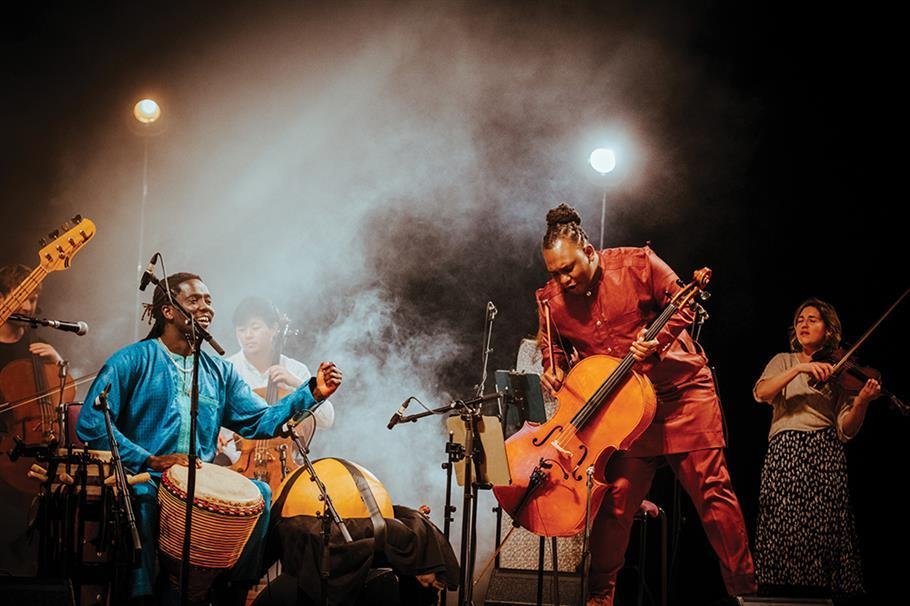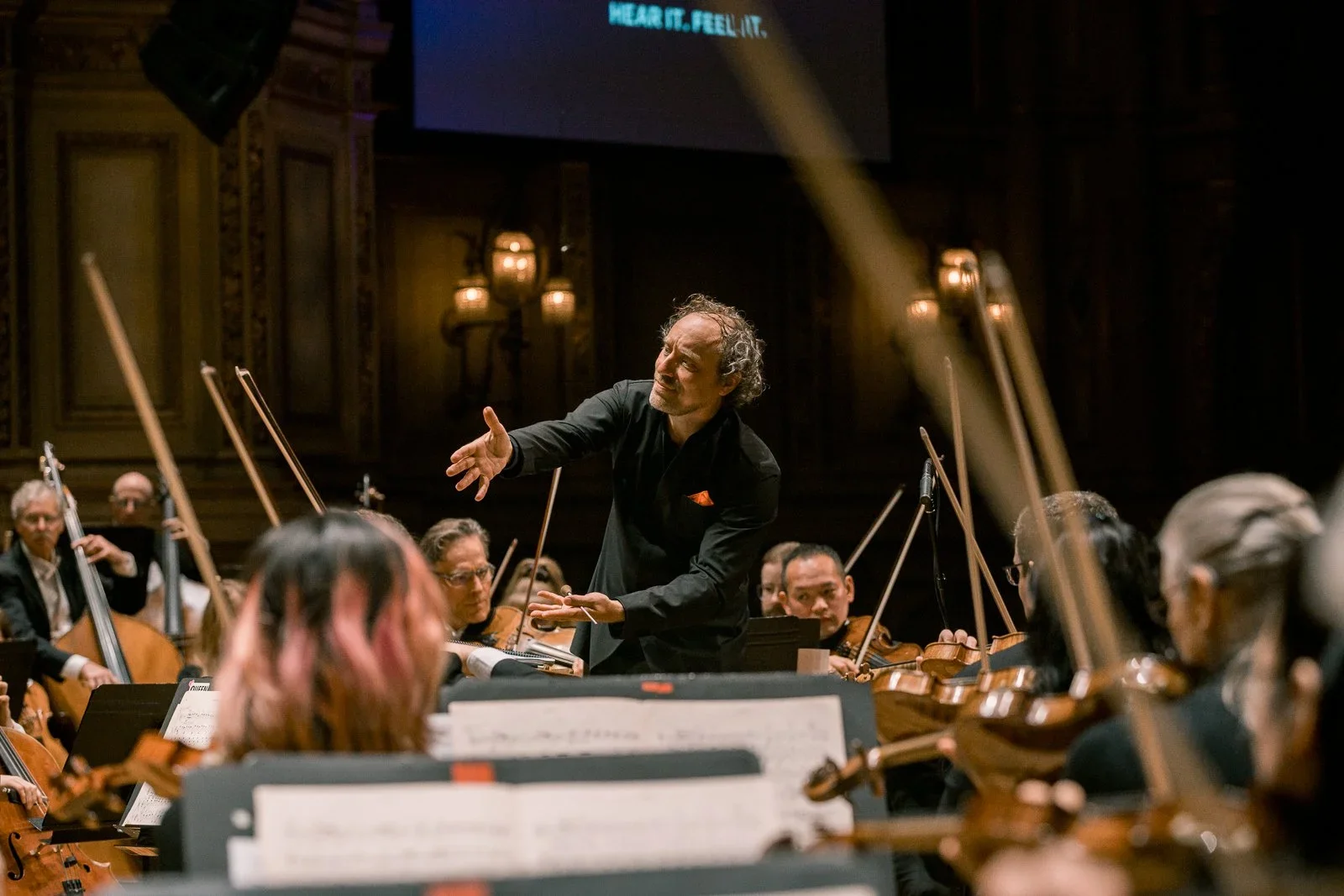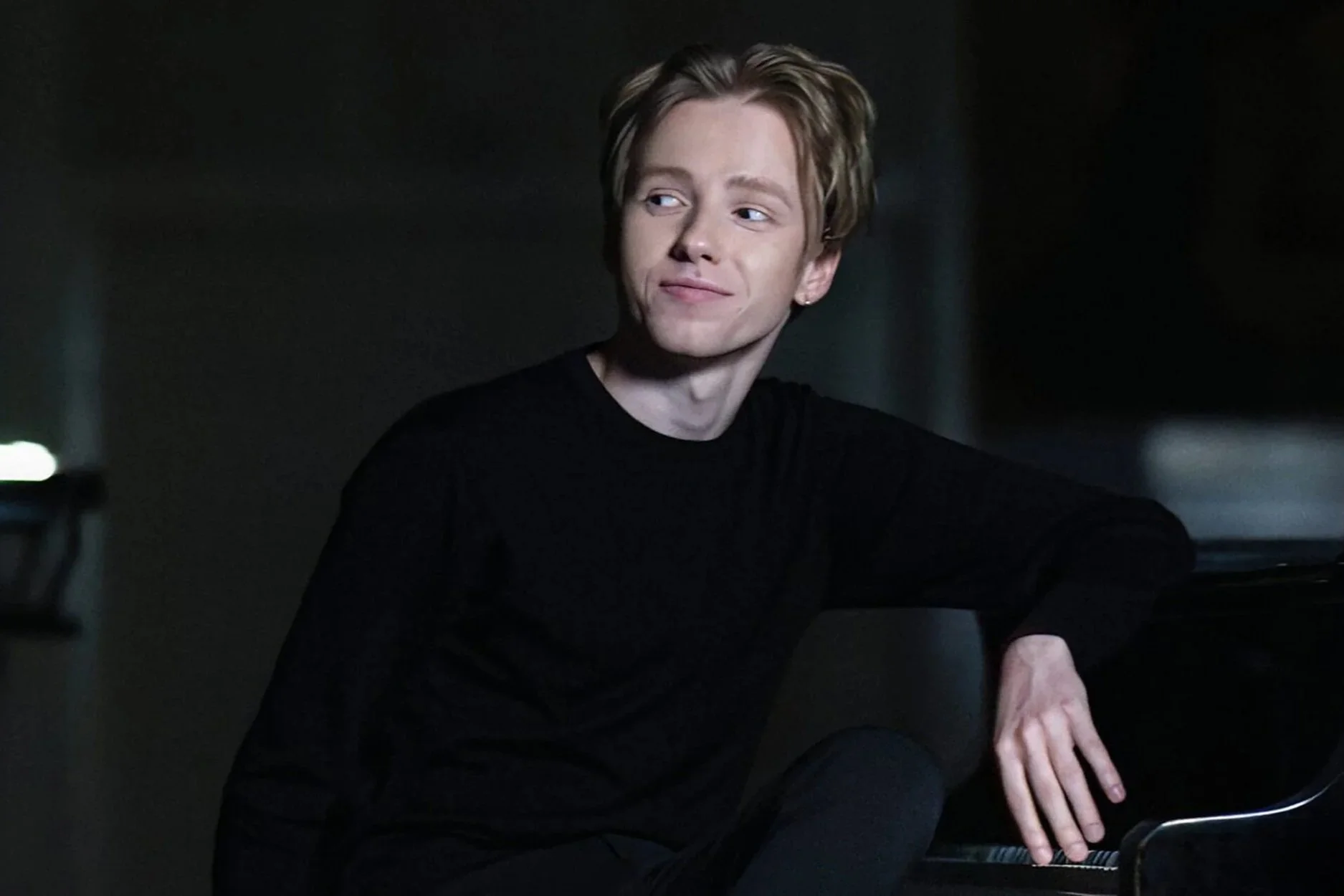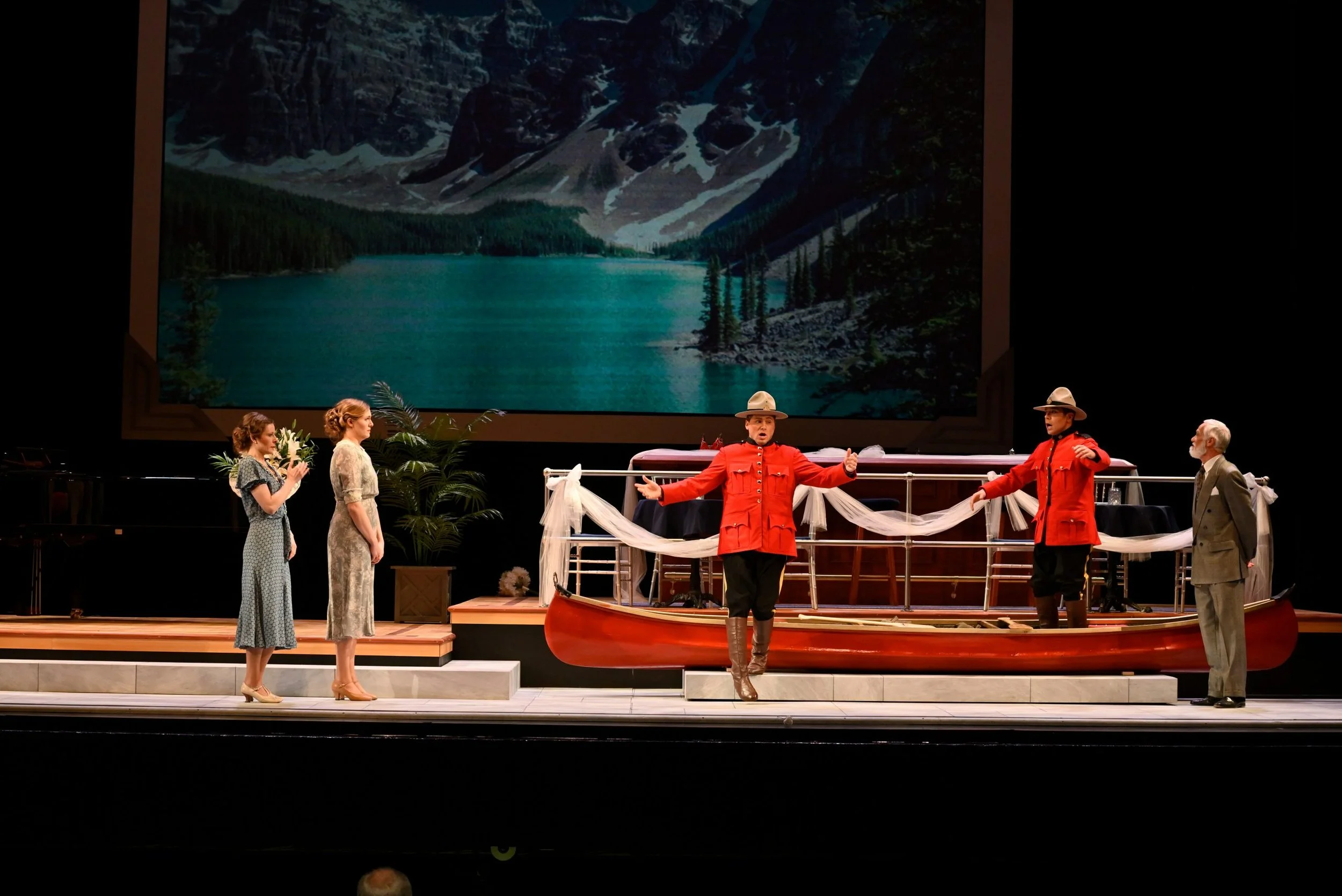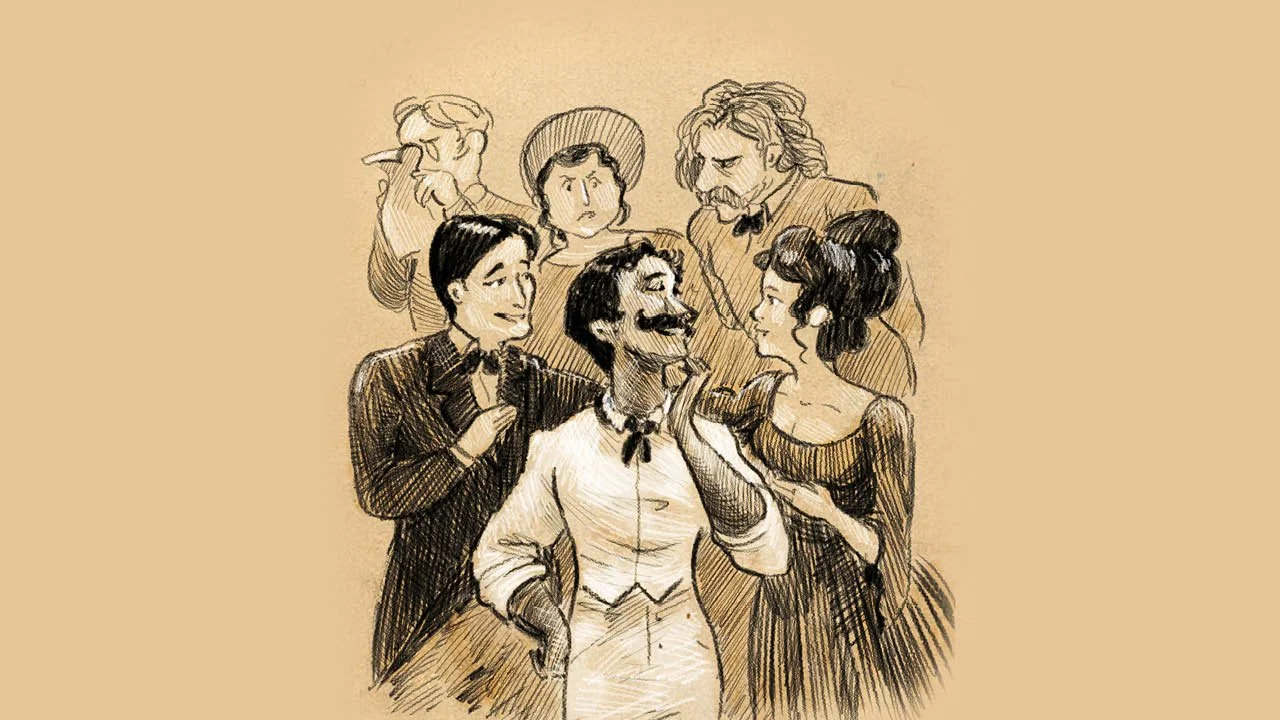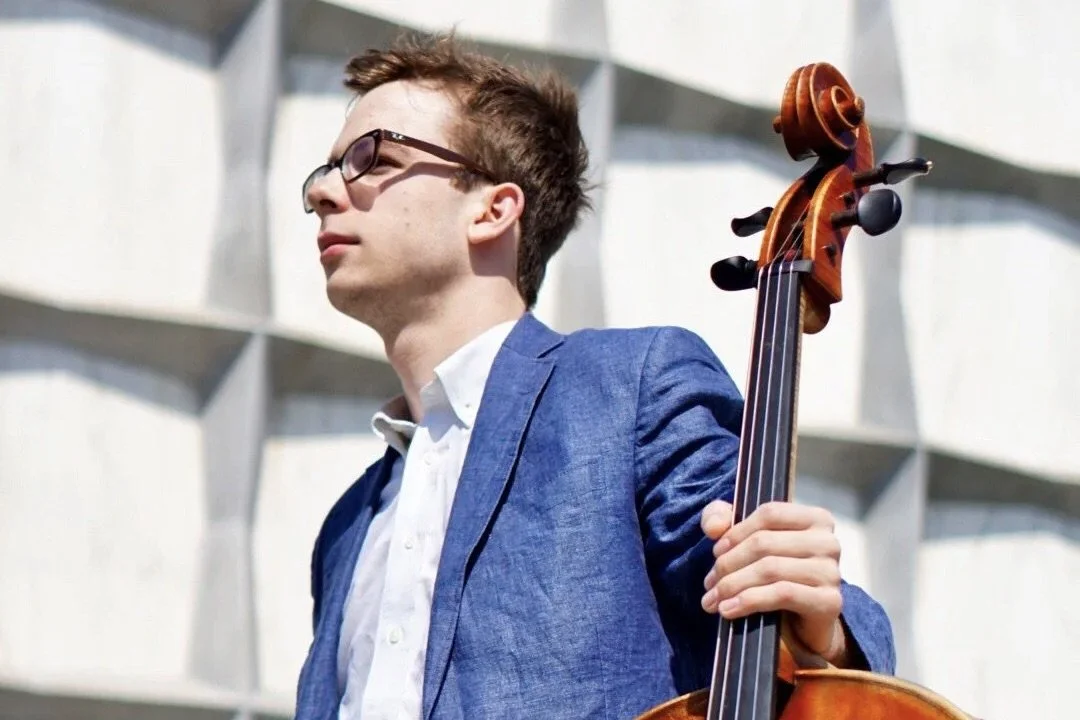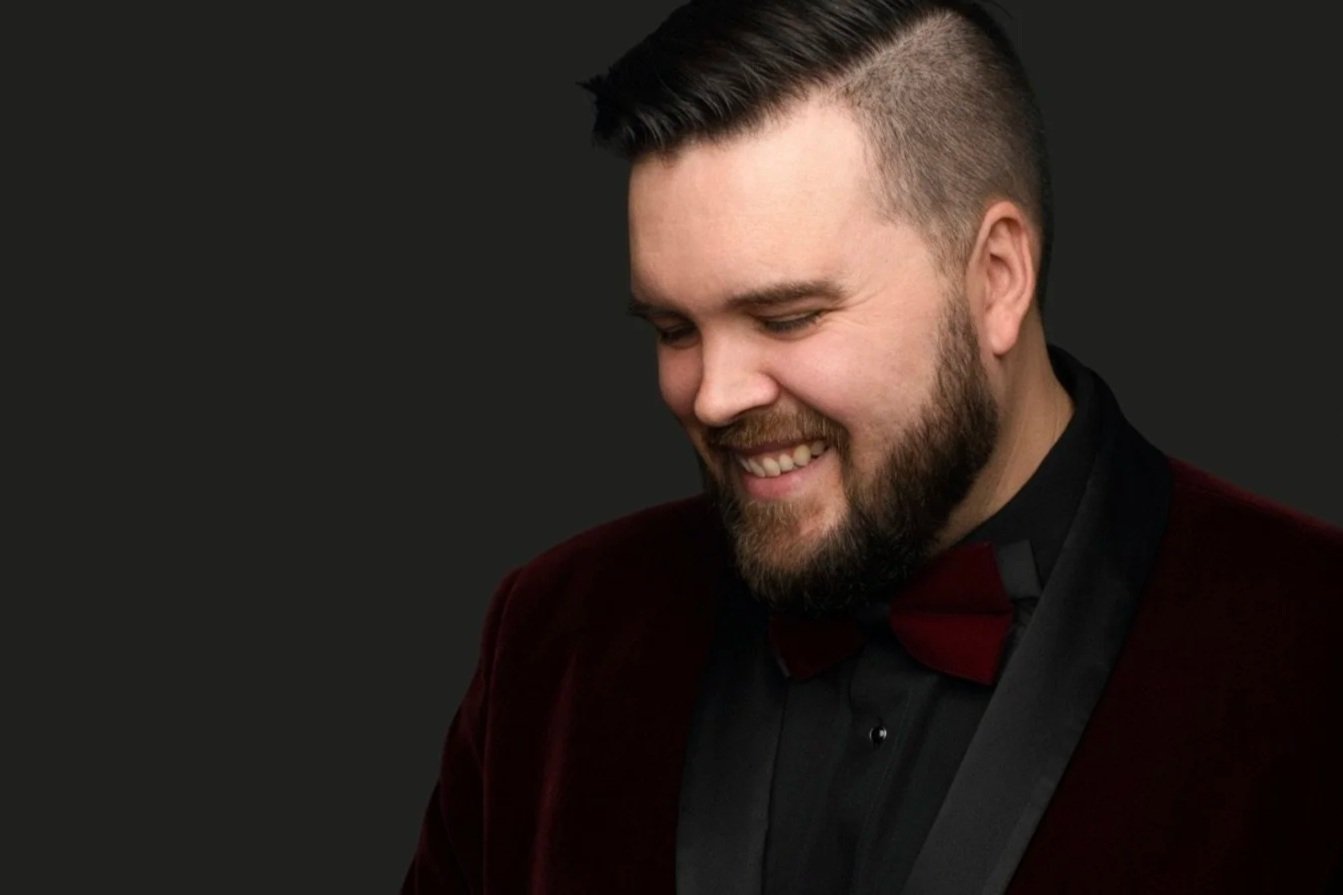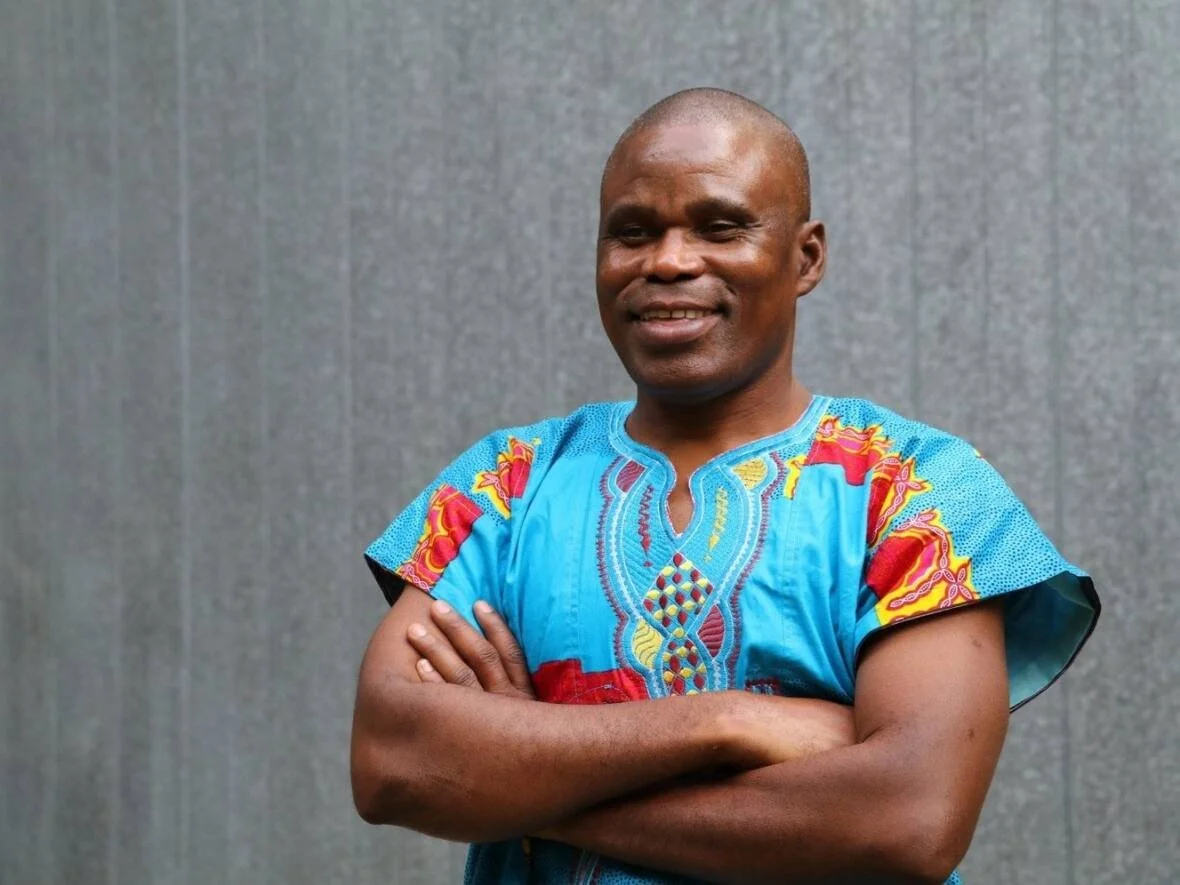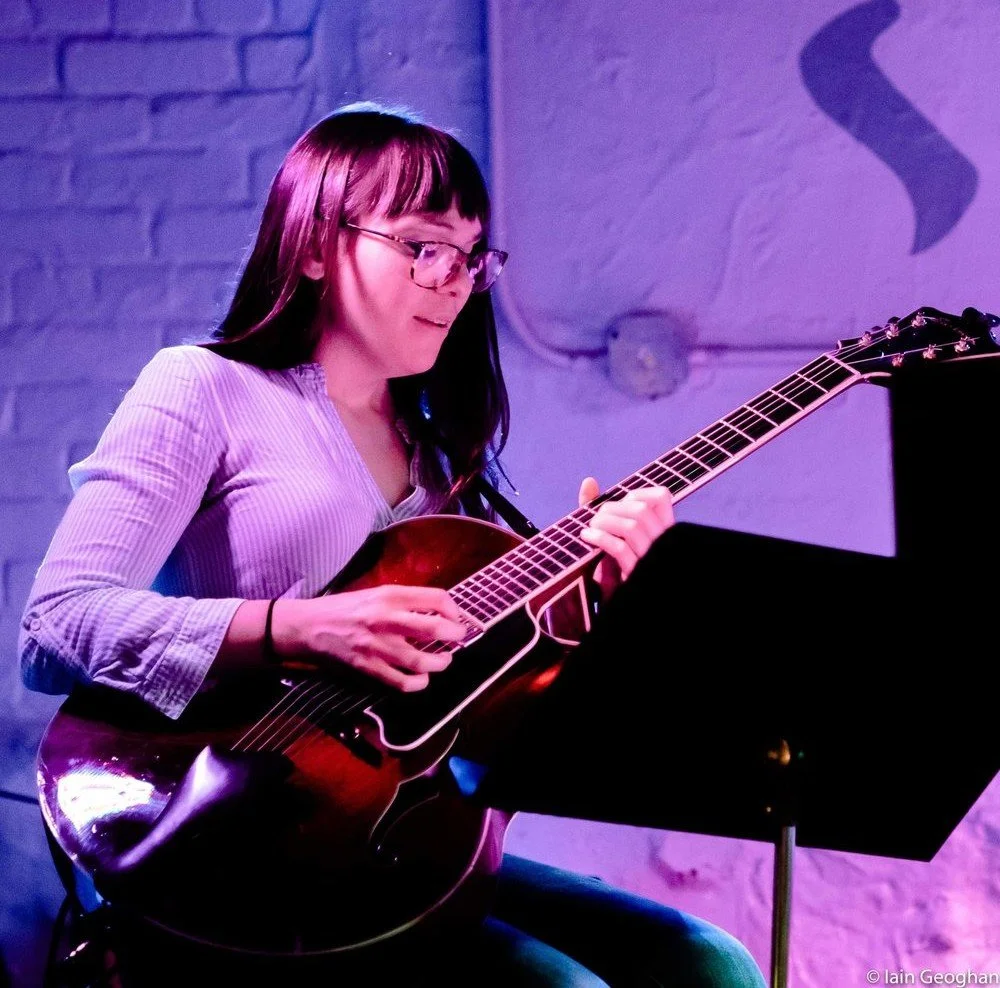Manchester Collective's Sirocco blows into Vancouver Recital Society, trailing rapturous reviews
Chamber performances emphasize on-stage interplay between South African cellist-vocalist Abel Selaocoe and his culture-blurring collaborators
Abel Selaocoe with the Manchester Collective.
The Vancouver Recital Society presents Sirocco at the Vancouver Playhouse on April 11
THEY SAID IT COULDN’T be done, but they were wrong.
Britain’s classical-music gatekeepers were dubious when Abel Selaocoe first joined forces with the Manchester Collective, circa 2017. It wasn’t surprising that a young, Black South African cellist could aspire to front a chamber-music ensemble—the world has moved on from such knee-jerk bigotry—but that Selaocoe’s definition of chamber music included the often raucous gospel music of his homeland, some nods towards the austerely beautiful folk music of Scandinavia, and jazz-tinged improvisation, alongside masterpieces old and new from the likes of Johann Sebastian Bach, Franz Haydn, Igor Stravinsky, and Steve Reich.
“That’s too much,” they secretly thought. But the Manchester Collective forged ahead anyway, and has since included Selaocoe in a dazzling series of collaborations and themed concerts including its current touring show, Sirocco. This particular production is named for the famed desert wind of the Mediterranean, which annually brings a hot wind from the south to Italy and Malta, and a fresh, warm breeze is exactly what we should expect when the Collective comes to the Vancouver Playhouse on April 11.
It’s safe to say that it’s going to be one of the most talked-about chamber-music concerts of the year.
A big part of that will inevitably come down to Selaocoe’s inimitable skill set, which includes the ability to play the classical repertoire at an advanced level, the power to sing with the gravelly authority of South African “groaner” Simon “Mahlathini” Nkabinde or the great bluesman Chester “Howlin’ Wolf” Burnett, considerable compositional prowess, and a born organizer’s temperament. Add to this dollops of charisma and the wholehearted support of sisters Rakhi and Simmy Singh on violin, Christine Anderson on viola, Alan Keary on electric bass, and Sidiki Dembele on percussion and the harp-like kamale ngoni, and it’s no wonder that the show has enjoyed rapturous acclaim. (See the video at bottom for an exhilarating taste.)
“I think the idea was to blend Abel’s compositions with a classical string quartet, but to do it over and over again, to the point where the lines get completely blurred,” says bassist Keary, in a Zoom conversation from Manchester. “If you come watch the gig, you’ll notice that there’s Haydn, but then the Haydn merges into an African hymn. So Abel’s whole idea was that these two worlds can exist in the same space rather than it being ‘Now we’re doing South African tunes. Now we’re doing classical repertoire.’ It was really to see how much we could glue together—and I think we do a really good job of it.”
Granted, the Collective is making use of connections that have existed for centuries. The Norwegian Hardanger-fiddle tune that features in Sirocco? It’s like medieval music from the south of France that headed north many generations ago. Selaocoe’s penchant for churchy chords? They’re one of the few positive holdovers from South African’s 500 years under Portuguese, Dutch, and English control. And, of course, the idea of a pan-Mediterranean culture linking North Africa, the Middle East, and Southern Europe has been comprehensively explored in the past 50 years.
“The more you go back, the more you realize that there’s a thread through everything,” Keary confirms. “We just did a project with a guy called Poul Høxbro. He’s Danish himself, and he collects extremely ancient instruments, and he collects melodies that can be tracked back almost to the post-Viking area from Denmark, Norway, Scotland, Ireland, Iceland even, sometimes. And it’s crazy: the more you go back, the more connected things are. There’s sharing of melodies, sharing of stories.”
Manchester Collective’s Allan Keary
Add to that a dash of quiet political urgency—most of the musicians are either immigrants or have immigrant roots—and the Manchester Collective’s emergence is particularly welcome and timely.
“You can say a lot with music by not being overtly political, by not saying ‘This political party, they’re doing this thing badly,’” Keary points out. “Obviously you can say that, but what questions can we ask with music alone, just by the choices we make musically? And what does that make people think by the end of the concert, when they walk away from it? This is powerful stuff, and that’s what working with Abel and Manchester Collective has taught me: that making bigger questions actually instills a bigger picture in how you see the world. And you can do that just with music alone.
“It’s about empathy, isn’t?” he continues. “Experiencing different cultures and having different conversations opens up your empathy, and leads to the perspective shift of saying ‘Oh, I hadn’t thought of it that way.’ That’s it, isn’t it? That’s a good thing to leave people with when they walk away from these concerts.”
The other takeaway Keary and his colleagues hope for is that audiences will find joy in their music—the same kind of hope and strength that the players have built into their performances by emphasizing on-stage interplay rather than immaculate sight reading.
“Sometimes when the guys play the Haydn they go on sheet music, but most of it isn’t, and the reason for that is that Abel is extremely passionate about being off-chart,” the bassist explains. “That way, we have eye contact with each other, and we’re smiling, and we’re being generous with the energy that we’re giving, Music does change when you look someone in the eye, you know. It really does. It becomes more alive, especially when you’re improvising. You need to be alert and be aware, and usually part of what happens when you look people in the eye is you start smiling. and that creates a feedback loop. It’s a really, really, fun gig for us, and I think then by osmosis the audience always leaves feeling really uplifted.”
And there’s one more aspect of the Collective’s music that Keary finds particularly satisfying: the electric bass is rarely represented in classical concert programs, and he’s convinced its acceptance is overdue. Informed that the Manchester Collective’s Playhouse concert likely marks the first time that the Vancouver Recital Society has featured his instrument, he grins and says he’s delighted to hear that.
“I love it,” he adds. “Its’s an absolute dream come true for me—and a pretty full-circle moment, because I play violin and cello as well, having studied classical music growing up. I still use them in my own way, but the bass is my first love, of course.
“The thing about playing the bass guitar is that it’s a really beautiful instrument that has a lot to offer in the way that it sounds,” he continues. “I can play it percussively, I use a lot of harmonics, I play chords. And, basically, the volume pedal is your friend, because with the volume pedal, I can come in and out, like an organist. The other string players have got bows, so I need to emulate them in some way, and so the volume pedal is my go-to effect, because when you go quiet, you need to go really quiet. I need to be really sensitive to what’s going on, but I absolutely adore it—and when people go “Oh, I’ve never heard a bass guitar played in that context,’ I just go ‘Yeah, it’s nice, isn’t it!’”
Given that Keary has already remarked on the electric bass leaning against the wall behind me, there’s only one way to respond: it is!
![]()


